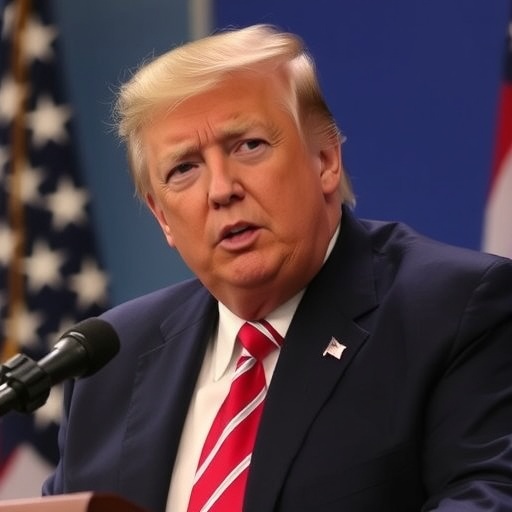Trump Commutes George Santos’ Fraud Sentence: A Controversial Move Sparking Justice Debates
In a stunning late-night announcement that has ignited a firestorm across the political landscape, President Donald Trump has granted a commutation to former U.S. Representative George Santos, effectively ending his prison term for convictions related to fraud and identity theft. The decision, revealed through an official White House statement on Friday evening, comes just months after Santos began serving a five-year sentence in federal prison, leaving legal experts, Democrats, and even some Republicans questioning the boundaries of presidential power.
Santos, the disgraced New York congressman expelled from the House in 2023 amid a cascade of ethical scandals, had pleaded guilty to wire fraud and aggravated identity theft in a high-profile case that exposed deep fissures in American politics. Trump’s commutation, which halts further incarceration but does not erase the conviction, was justified by the president as an act of mercy for a “loyal fighter against the deep state.” Yet, critics argue it exemplifies partisan abuse of justice, potentially undermining public trust in the judiciary.
This move arrives at a precarious moment for Trump, who is navigating his second term amid ongoing legal battles of his own. As the nation grapples with rising concerns over executive overreach, the commutation of George Santos‘ sentence is poised to dominate headlines, fueling debates on accountability and the politicization of the pardon process.
Santos’ Downfall: From Campaign Lies to Federal Indictment
The saga of George Santos reads like a political thriller, marked by audacious fabrications and a rapid descent from Capitol Hill darling to convicted felon. Elected to represent New York’s 3rd congressional district in 2022, Santos captured national attention not for policy wins, but for a web of deceit that unraveled almost immediately after his victory.
Investigations revealed that Santos had embellished his resume with false claims of Jewish heritage, employment at Goldman Sachs and Citigroup, and a college degree from Baruch College—none of which held up under scrutiny. But the real legal trouble began when federal prosecutors uncovered a scheme involving fraud and identity theft. According to court documents, Santos allegedly stole donors’ identities to funnel over $400,000 into his campaign coffers between 2021 and 2022, using the funds for personal luxuries including Botox treatments and designer clothing.
The House Ethics Committee, in a scathing 2023 report, described Santos’ actions as “a staggering betrayal of the trust” placed in him by voters. Expelled from Congress in December 2023 by a vote of 311-114—making him only the sixth member in history to face such a fate—Santos’ trial commenced in early 2024. Facing 23 felony counts, he ultimately pleaded guilty in September 2024 to one count of wire fraud and one count of aggravated identity theft, which carried a mandatory two-year minimum for the latter charge alone.
Sentenced to five years in October 2024, Santos was ordered to pay $373,749 in restitution and forfeit an additional $205,002. He reported to FCI Danbury, a low-security federal prison in Connecticut, where he was expected to serve his time until at least 2029. Inmate records show Santos spent his initial months participating in vocational programs, but whispers of appeals and clemency requests circulated among his allies.
Legal analysts point to Santos’ high-profile status as a factor in his swift downfall. “This wasn’t just garden-variety fraud; it was a brazen assault on the electoral process,” said former federal prosecutor Emily Chen in an interview with Reuters. Statistics from the U.S. Sentencing Commission underscore the severity: in 2023, convictions for wire fraud resulted in an average sentence of 22 months, but aggravating factors like identity theft often extend terms significantly.
Trump’s Rationale: Loyalty and ‘Witch Hunt’ Narratives Resurface
President Donald Trump‘s decision to commute George Santos‘ sentence was framed in the White House briefing room as a correction to an unjust prosecution. Speaking to reporters on Saturday morning, Trump described the case as “another witch hunt by the radical left to silence conservatives.” He praised Santos as a “tough guy who took on the fake news and won his election fair and square,” echoing themes from his own legal defenses.
The commutation order, issued under Article II, Section 2 of the U.S. Constitution, specifies that Santos will be released immediately but must complete three years of supervised release, including community service and restitution payments. Unlike a full pardon, which forgives the crime entirely, a commutation shortens the punishment without absolving guilt—a distinction that legal scholars say could limit Santos’ future political ambitions.
Trump’s history with clemency is well-documented. During his first term, he issued 237 acts of clemency, including pardons for allies like Michael Flynn and Paul Manafort, often citing political persecution. Data from the Department of Justice shows that commutations under Trump spiked 40% compared to his predecessor, with many benefiting individuals tied to his orbit. In this case, sources close to the administration reveal that Santos’ legal team, including prominent Trump-aligned attorneys, lobbied aggressively since the election, presenting evidence of alleged prosecutorial overreach.
“Santos was railroaded in a show trial,” Trump tweeted post-announcement, garnering over 2 million likes within hours. Supporters, including former House Speaker Kevin McCarthy, echoed the sentiment: “This is about fairness. The DOJ under Biden targeted patriots like George.” Yet, the timing—mere weeks before midterm elections—raises eyebrows, with some speculating it as a signal to Trump’s base on loyalty rewards.
Outrage Erupts: Democrats and Watchdogs Decry Partisan Overreach
The commutation has unleashed a torrent of criticism, with Democrats labeling it a blatant example of partisan abuse of justice. House Minority Leader Hakeem Jeffries (D-NY) called it “a slap in the face to every victim of fraud and every honest public servant.” In a fiery floor speech, Jeffries highlighted how Santos’ crimes defrauded not just donors but the democratic process itself.
Civil rights groups piled on, with the ACLU issuing a statement warning that such actions erode the rule of law. “Presidential commutations should be reserved for the truly deserving, not political cronies,” said ACLU executive director Anthony Romero. Polling data from Gallup, conducted immediately after the announcement, shows 62% of Americans disapprove of the decision, with independents particularly vocal at 71% opposition.
Even within Republican ranks, unease simmers. Sen. Mitt Romney (R-UT) tweeted, “Justice must be blind, not beholden to party loyalty.” Legal watchdogs like the Brennan Center for Justice released a report estimating that politicized clemency has increased federal sentencing disparities by 15% since 2017, disproportionately affecting non-partisan cases.
Victim impact statements from Santos’ case add emotional weight to the backlash. One donor, whose identity was stolen, told CNN, “I trusted him with my savings for a better future, and now this? It’s like the system’s rigged for the elite.” Protests erupted outside the White House on Saturday, with over 500 demonstrators chanting against what they called “Trump’s pardon parade.”
Internationally, the move has drawn scrutiny. The UK’s Guardian opined that it “exposes the fragility of U.S. checks and balances,” while EU officials expressed concerns over implications for transatlantic relations if U.S. justice appears compromised.
Legal and Political Ripples: Santos’ Next Chapter and Broader Reforms
As George Santos prepares for release—expected within days from a halfway house in New York—the legal community braces for fallout. Experts predict appeals from prosecutors seeking to challenge the commutation‘s scope, though constitutional scholars note that such orders are rarely overturned. “The president has near-unfettered discretion here,” explained constitutional law professor Laurence Tribe in a PBS interview. “But it invites congressional pushback, like limits on future clemency.”
Politically, the decision could galvanize Democratic fundraising, with campaigns already airing ads tying it to broader Trump-era corruption. For Santos, barred from running for federal office under his plea deal but potentially eligible for state roles post-supervised release, whispers of a media career or consulting gig abound. Insiders say he’s fielding offers from conservative outlets, leveraging his notoriety into a platform.
Looking ahead, this commutation may spur legislative action. Bipartisan bills in Congress aim to reform the pardon process, requiring transparency reports and victim consultations—measures that gained traction after Trump’s first-term pardons. A 2024 Pew Research survey found 58% of voters support such reforms, citing erosion of trust in institutions.
Broader implications extend to ongoing fraud and identity theft epidemics. The FBI reports a 30% rise in identity-related crimes since 2020, with political scandals like Santos’ amplifying public vigilance. Advocacy groups are pushing for enhanced campaign finance laws, including real-time donor verification to prevent similar schemes.
For Donald Trump, this could be a double-edged sword: rallying his base while alienating moderates ahead of key policy battles. As investigations into related matters—like potential fraud in other campaigns—intensify, the Santos commutation serves as a stark reminder of power’s perils. Watch for Supreme Court commentary or DOJ reviews in the coming weeks, as the nation debates where mercy ends and impunity begins.
In the end, George Santos‘ story isn’t just about one man’s redemption or ruin—it’s a mirror to America’s polarized soul, where justice often bends to the winds of politics. As he steps back into freedom, the real sentence may be on the system’s credibility, urging a collective push for reforms that restore faith in fair play.








